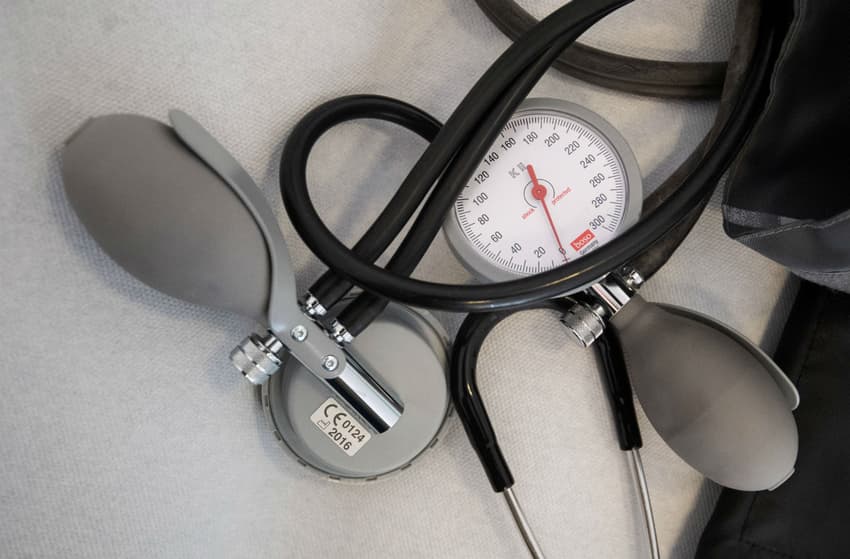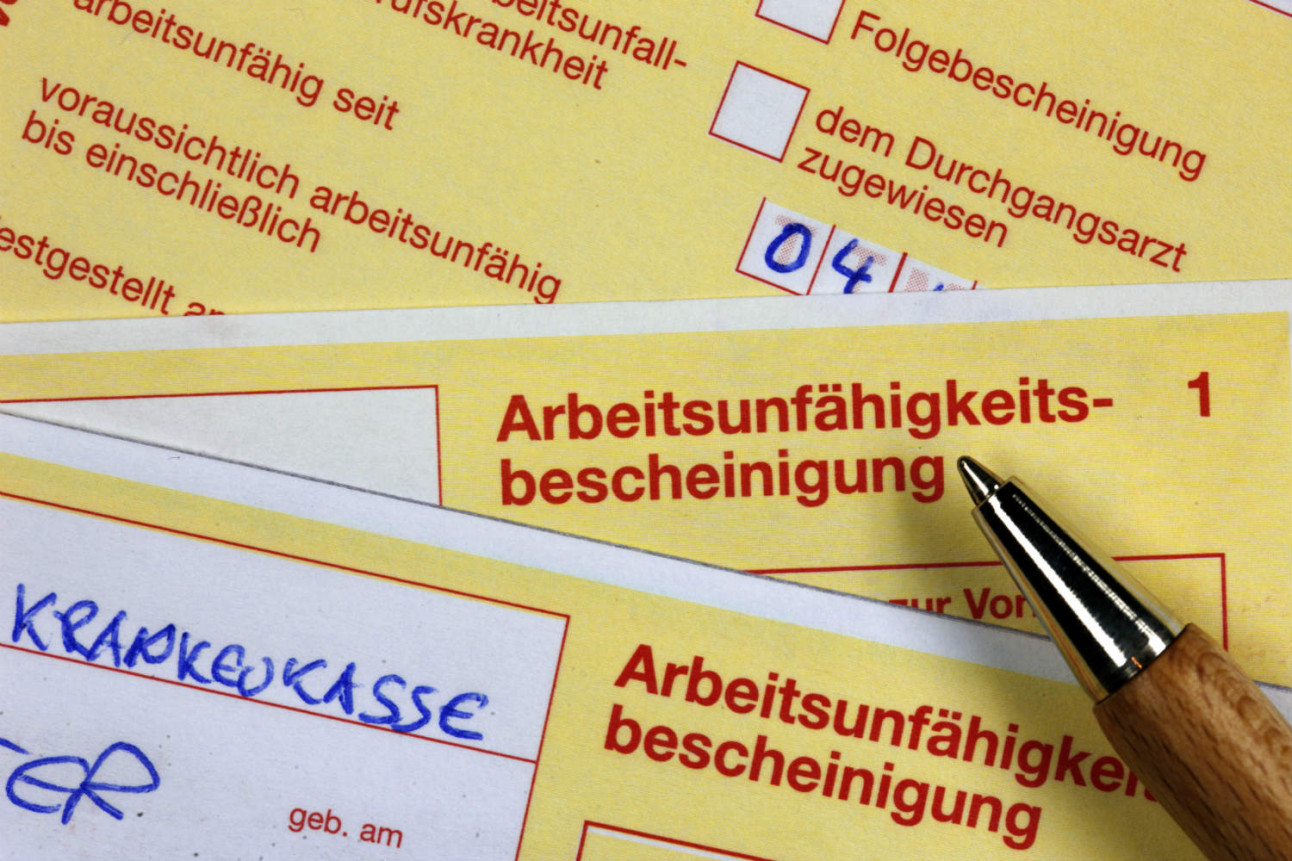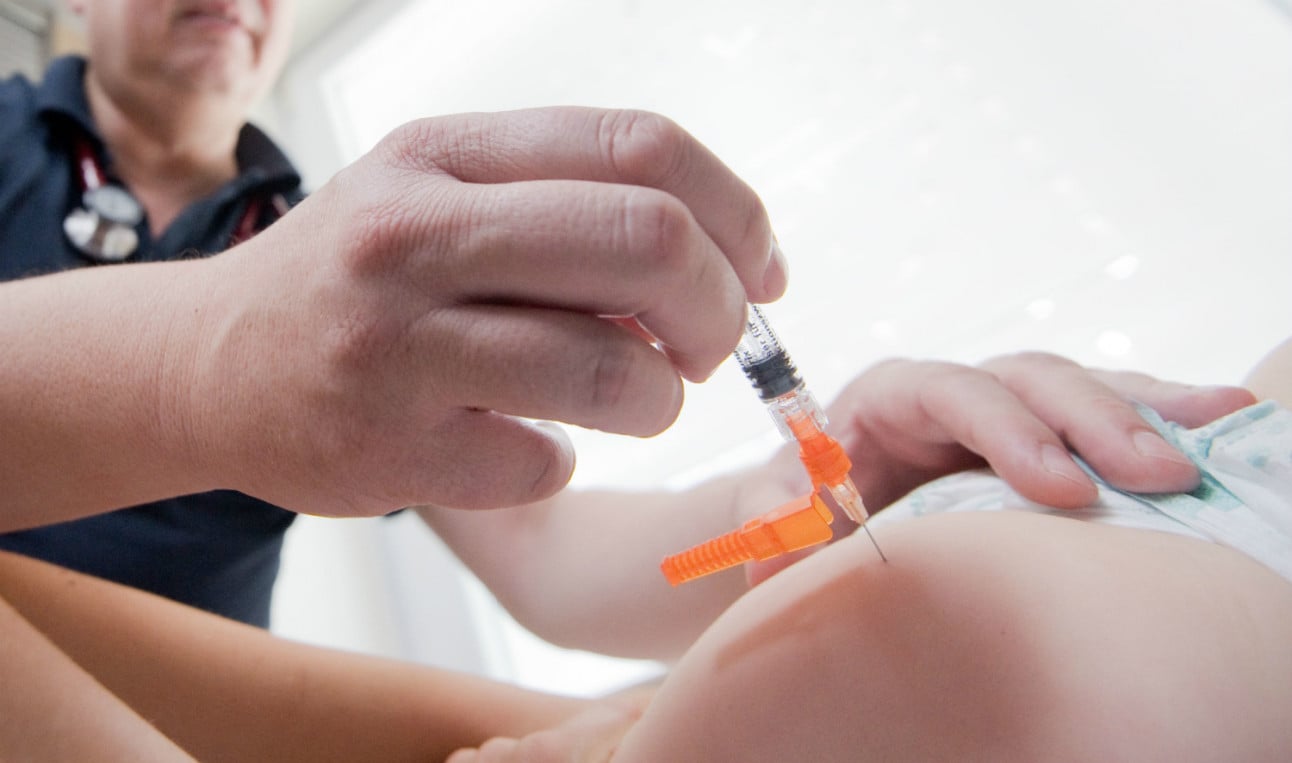Health care in Germany: Here's what's changing for patients in 2021

From a stricter measles vaccination requirement to digitalisation of doctors' appointments and prescriptions, here's what you can expect from January 2021 onwards.
More health care staff
There’s no doubt that the coronavirus crisis put a lot of strain on Germany’s health care system - and its workers - in 2020. But to try to prevent personal shortages in 2021, Health Minister Jens Spahn announced that Germany would hire 20,000 new health workers in retirement and care homes.
Additional employees will also be hired at health offices and as birth assistants at hospitals, said Spahn, without giving a specific number.
READ ALSO: Explained: How Germany plans to fight its drastic shortage of care workers
Electronic documents easier to access
Since January 1st, people with statutory health insurance have been able to voluntarily use an electronic patient record (ePA), which is provided by their health insurer.
This means that, with the patient's consent, medical history, treatments, medication administered and previous illnesses can be stored electronically, so that other treating doctors and hospitals can also access this information if necessary and get a quicker (and better) picture of the patient's condition.
The aim is to optimise health care, but also to avoid unnecessary multiple examinations. Patients themselves can specify who is allowed to view the data. For privately insured patients, the electronic patient file will not be available until January 2022.
QR Code prescriptions
From July 1st, patients will receive their prescription from their doctor via QR code and app and thus transmit it to the pharmacy. The pharmacy can then inform the patient whether the preparation is in stock or when it will be ready for collection.
This model is to be mandatory for people with statutory health insurance as early as 2022, replacing the paper prescription.
Sick notes submitted electronically to health insurance

A paper 'Krankenschein'. Photo: DPA
Until now, employees had to submit their sick note (Krankenschein) to the insurer themselves when they called in sick. at work
As of January, this can be done electronically: the doctor will then send the so-called eAU (electronic certificate of incapacity for work) directly to the insurer. However, the patient will still receive a paper certificate which they can pass on to their employer.
From 2022, the employer will also be able to retrieve the sickness notification directly from the health insurance company.
READ ALSO: How Germany plans to ditch paper sick notes for digital ones
Higher threshold for private insurance
Due to the increase in wages in 2020, the "assessment threshold" (what income is needed to qualify) for private health insurance will also rise in 2021. Now anyone earning more than €64,350 gross per year - as opposed to the prior €62,550 - will qualify.
Longer deadlines for treatment
Previously, if a doctor prescribed physiotherapy, occupational therapy or another type of therapy, it had to be started 14 days after the date of issue of at the latest. According to the new version of the Therapeutic Products Directive, patients now have more time for this - namely up to 28 days after the date of issue - in order for the statutory health insurance to pick up the costs..
Stricter mandatory measles vaccination
Previously children who started at a Kita or school before March 1st 2020 were required to provide proof of a measles vaccine - but now the requirement is being extended to all school-age children, and staff of schools and Kitas, regardless of when they started.
Anyone who disregards the rule can expect a fine of up to €2,500.
READ ALSO: Measles vaccination to become mandatory in Germany

A child being vaccinated against measles in Hanover. Photo: DPA
Easier change of health insurance fund from 2021 possible
Until now, people with statutory health insurance have only been able to change health insurers after a minimum contract period of 18 months. This is changing in the new year: The minimum term will then only be twelve months.
The termination procedure has also been simplified: in future, it will be sufficient to submit a declaration of enrolment in the new insurance company, which will then serve as a termination of the previous one. The employee will only be informed informally about the change.
Better protection against ultrasound damage
Ultrasound examinations during pregnancy that are not medically justified and not part of the benefits catalogue (Leistungskatalog) of the statutory health insurance will be banned as of January 1st.
A new regulation in the Radiation Protection Act is intended to protect embryos from an unnecessary, excessive dose of radiation.
The high ultrasound intensities required for imaging are said to be associated with a possible risk to the unborn child, especially since much more sound energy is absorbed at the skeletal level as bone formation begins.
The ban includes Doppler, duplex, 3D or 4D procedures, commonly called "Babyfernsehen" (“Baby-TV”) "Babykino" oder "Baby-Viewing”. Many practices offer such examinations as self-pay services (IGeL).
READ ALSO: From Kindergeld to tax benefits: What changes for families in Germany in 2021
Comments
See Also
More health care staff
There’s no doubt that the coronavirus crisis put a lot of strain on Germany’s health care system - and its workers - in 2020. But to try to prevent personal shortages in 2021, Health Minister Jens Spahn announced that Germany would hire 20,000 new health workers in retirement and care homes.
Additional employees will also be hired at health offices and as birth assistants at hospitals, said Spahn, without giving a specific number.
READ ALSO: Explained: How Germany plans to fight its drastic shortage of care workers
Electronic documents easier to access
Since January 1st, people with statutory health insurance have been able to voluntarily use an electronic patient record (ePA), which is provided by their health insurer.
This means that, with the patient's consent, medical history, treatments, medication administered and previous illnesses can be stored electronically, so that other treating doctors and hospitals can also access this information if necessary and get a quicker (and better) picture of the patient's condition.
The aim is to optimise health care, but also to avoid unnecessary multiple examinations. Patients themselves can specify who is allowed to view the data. For privately insured patients, the electronic patient file will not be available until January 2022.
QR Code prescriptions
From July 1st, patients will receive their prescription from their doctor via QR code and app and thus transmit it to the pharmacy. The pharmacy can then inform the patient whether the preparation is in stock or when it will be ready for collection.
This model is to be mandatory for people with statutory health insurance as early as 2022, replacing the paper prescription.
Sick notes submitted electronically to health insurance

A paper 'Krankenschein'. Photo: DPA
Until now, employees had to submit their sick note (Krankenschein) to the insurer themselves when they called in sick. at work
As of January, this can be done electronically: the doctor will then send the so-called eAU (electronic certificate of incapacity for work) directly to the insurer. However, the patient will still receive a paper certificate which they can pass on to their employer.
From 2022, the employer will also be able to retrieve the sickness notification directly from the health insurance company.
READ ALSO: How Germany plans to ditch paper sick notes for digital ones
Higher threshold for private insurance
Due to the increase in wages in 2020, the "assessment threshold" (what income is needed to qualify) for private health insurance will also rise in 2021. Now anyone earning more than €64,350 gross per year - as opposed to the prior €62,550 - will qualify.
Longer deadlines for treatment
Previously, if a doctor prescribed physiotherapy, occupational therapy or another type of therapy, it had to be started 14 days after the date of issue of at the latest. According to the new version of the Therapeutic Products Directive, patients now have more time for this - namely up to 28 days after the date of issue - in order for the statutory health insurance to pick up the costs..
Stricter mandatory measles vaccination
Previously children who started at a Kita or school before March 1st 2020 were required to provide proof of a measles vaccine - but now the requirement is being extended to all school-age children, and staff of schools and Kitas, regardless of when they started.
Anyone who disregards the rule can expect a fine of up to €2,500.
READ ALSO: Measles vaccination to become mandatory in Germany

A child being vaccinated against measles in Hanover. Photo: DPA
Easier change of health insurance fund from 2021 possible
Until now, people with statutory health insurance have only been able to change health insurers after a minimum contract period of 18 months. This is changing in the new year: The minimum term will then only be twelve months.
The termination procedure has also been simplified: in future, it will be sufficient to submit a declaration of enrolment in the new insurance company, which will then serve as a termination of the previous one. The employee will only be informed informally about the change.
Better protection against ultrasound damage
Ultrasound examinations during pregnancy that are not medically justified and not part of the benefits catalogue (Leistungskatalog) of the statutory health insurance will be banned as of January 1st.
A new regulation in the Radiation Protection Act is intended to protect embryos from an unnecessary, excessive dose of radiation.
The high ultrasound intensities required for imaging are said to be associated with a possible risk to the unborn child, especially since much more sound energy is absorbed at the skeletal level as bone formation begins.
The ban includes Doppler, duplex, 3D or 4D procedures, commonly called "Babyfernsehen" (“Baby-TV”) "Babykino" oder "Baby-Viewing”. Many practices offer such examinations as self-pay services (IGeL).
READ ALSO: From Kindergeld to tax benefits: What changes for families in Germany in 2021
Join the conversation in our comments section below. Share your own views and experience and if you have a question or suggestion for our journalists then email us at [email protected].
Please keep comments civil, constructive and on topic – and make sure to read our terms of use before getting involved.
Please log in here to leave a comment.